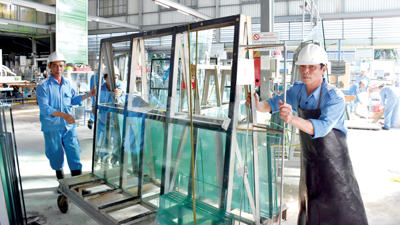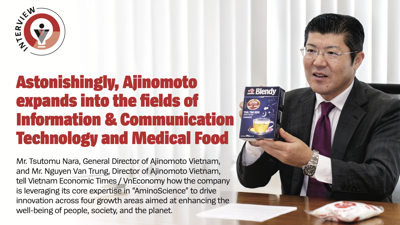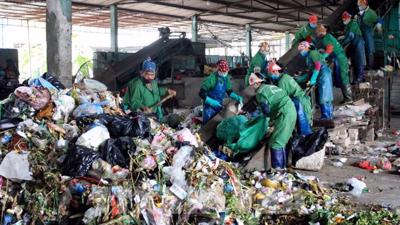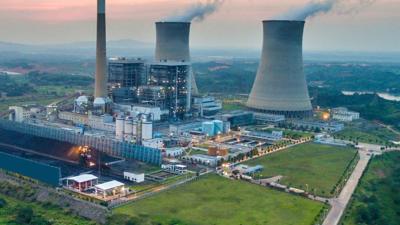Healthy relations
Dr. Eric Dziuban, Vietnam Country Director at the US Center for Disease Control and Prevention (US CDC), tells VnEconomy / VET about healthcare cooperation between Vietnam and the US, especially following the upgrade of relations to a Comprehensive Strategic Partnership.
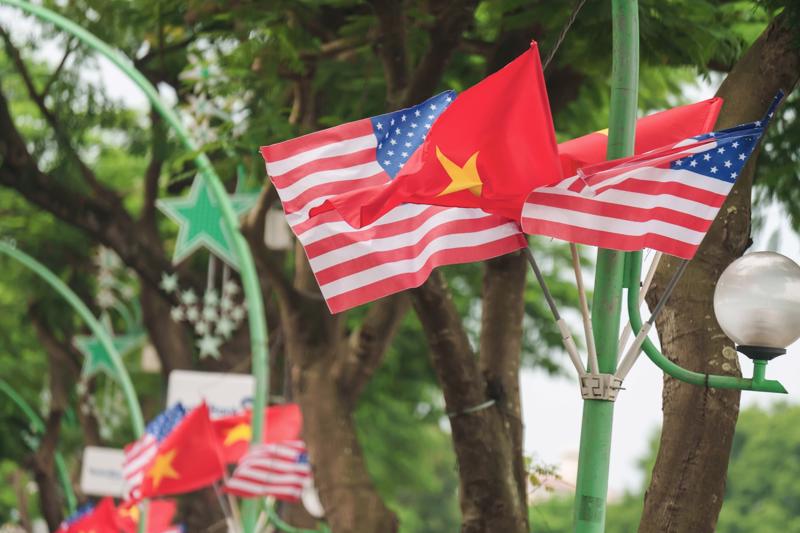
Vietnam and the US will celebrate the 30th anniversary of relations next year. How do you view the level of health cooperation between the two sides?
The 30th anniversary of relations between Vietnam and the US next year is going to be a very special time. I think it will be a real opportunity to look and see how far the relationship has come and how strong it is right now. We have come a long way and achieved many results. Health has always been a central and core part of the two countries’ bilateral relations from the beginning.

I think the 30-year milestone is also a time for us to look back at the successes we have achieved as well as look forward to the cooperative opportunities to achieve common goals in the future. We know that diseases don’t stay in one country. They spread and can become global very quickly, as we saw with Covid-19.
The work we are doing together makes Vietnam and the US stronger and safer. It also helps the whole world. Leaders in both countries recognize that, and that is why healthcare is still one of the priorities in the two countries’ relations.
How would you assess Vietnam’s capacity to respond and adapt to emerging health threats?
One of the things that we saw in Vietnam and that the whole world saw during Covid-19 was that Vietnam has a strong public health system. It acted very quickly, and especially in the first 18 months of the pandemic maintained an amazing amount of control over the spread of the virus in the country. The system also helped in tracing and isolating and in quickly deploying vaccines.
One thing we learned in Vietnam and in a lot of other countries is that preparedness is not equal across all cities and provinces. Local resources are important. Therefore, there needs to be solutions to support local areas. I was impressed by the rapid mobilization of other health resources to adapt to the Covid 19 situation. For example, hospitals that were developed for patients with tuberculosis were quickly transformed into facilities for Covid-19 patients.
However, many routine health services were disrupted during Covid-19, such as childhood vaccinations for diseases like polio and measles. Therefore, one of the main goals now is to increase these rates so that people continue to be protected from those threats.
In addition, we also saw major efforts from local health workers to ensure that people were still accessing their services.
What are the biggest health threats facing Vietnam right now?
I cannot predict the risks of new diseases because everything around us is changing very quickly, including diseases as well as other threats. What we can do now is to change and adjust the system to quickly adapt to the situation, preparing for any rapid changes.
For example, Covid-19 was a disease unknown to the entire world and then it spread quickly to every single country. Therefore, we need to be prepared to be able to respond to such unknown threats and have systems that will be able to quickly adapt when something new comes along.
One of the most important activities that Vietnam is doing right now to be prepared for that is developing its own national CDC, which will be a part of the Ministry of Health and can really focus on being prepared for threats like this.
All of our cooperative support in previous programs, such as establishing emergency public health centers or public health human resource development, will become part of the national CDC. This shows that the country is well prepared to adapt to new disease threats.
What is the outlook for healthcare cooperation between the two countries, especially after relations were upgraded to a Comprehensive Strategic Partnership?
Vietnam and the US signed a Comprehensive Strategic Partnership in September last year, when President Joe Biden visited. He met with the Party General Secretary and they agreed on a plan for an upgraded partnership between the countries to go forward.
The upgrade to a Comprehensive Strategic Partnership is a very strong signal to the top levels of both leaderships about how much potential there is for us to continue to grow our health partnership. It doesn’t come with a cost. It’s not something that is balanced against other interests. It’s something that is creating good for Vietnamese people and American people and the relationship.
Plans to put a CDC ASEAN regional office in Hanoi came from very high levels of our government because of the strengthening relationship and because the US and Vietnam are continuing to have more and more areas of cooperation.
It is possible that the next pandemic could start in Southeast Asia, where the population is large. We know there are emerging disease threats here, just like there are in all other parts of the world. All of us in public health are working really hard to prevent that. We don’t want the next major disease emergency to come from this part of the world. We are trying to make it so that we can very rapidly respond when something is wrong and contain it before it becomes an international problem.
When a new threat comes, that is not the time to be starting a partnership. This is why it’s so important that we already have trusted partnerships established, so that when new challenges come, we are ready to adapt.
After I leave Vietnam, I will return to our headquarters in Atlanta and work at the global health center. From there, I will have many opportunities to highlight the success we are having here and help make sure that our headquarters supports the work being done in Vietnam.


